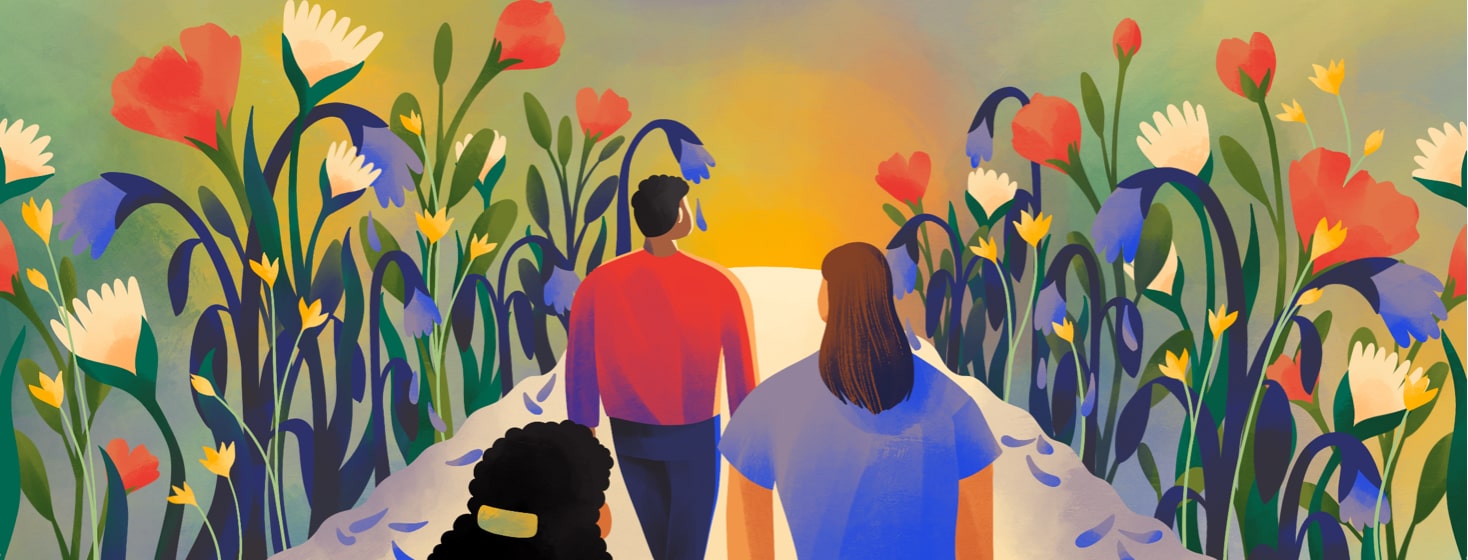Pain Is Part of the Road
"We live in a culture that only wants to talk about what's going well. Anything that's not going well is positioned as a detour from the main road. The truth is that pain is not a detour from the main road. Pain is part of the road we walk as human beings." --Susan Cain
Reading helps me embrace my emotions
What I've learned from Susan Cain's writing
This quote is from Susan Cain's new book, Bittersweet: How Sorrow and Longing Make Us Whole. The bestselling author of the book, Quiet, Cain uses a mix of research, storytelling, and memoir to explore why we experience sorrow and longing, and the surprising lessons these states of mind teach us about creativity, compassion, leadership, spirituality, mortality and love.
Cain recognizes the harms of toxic positivity in our society, which is an issue I wrote a bit about in another article: "RA-United!". Pain, sorrow, darkness, melancholy, grief, and sadness are universal and intrinsic parts of everyone's life. And so are joy, delight, beauty, light, and happiness. The good and bad in life are inextricably linked and to not recognize and honor that is to not live a genuine, honest, and full existence. I want to explore all of this, open myself up to pain, and embrace the darkness along with the blinding beauty of joy. Somehow.
Daring to be vulnerable thanks to Brene Brown
I haven't read Bittersweet yet, but I'm very eager to do so. I happened to come across Cain's quote about pain being part of the "main road" in life on an Instagram post by Brené Brown. In case you haven't heard of her before (but it seems like everyone has?!), Brené Brown is an American research professor, lecturer, author, and podcast host.
Brown is known in particular for her research on shame, vulnerability, and leadership, and she's written 6 #1 New York Times bestselling books. I've read one of her books so far, Daring Greatly, which I really enjoyed. I like and appreciate that she encourages people to dare to be vulnerable in life, to live courageously, and face their issues surrounding shame.
In denial about my RA diagnosis
Living with chronic pain and illness, such as RA, requires or even forces people to be vulnerable and to face all of the different ways pain affects their lives. For the majority of the 20+ years I've had RA, I barely spoke or acknowledged that I even had the disease. I tried very hard to keep the physical and emotional pain of living with RA, especially at a very young age (I was diagnosed at age 18), to myself and quite private.
I fought hard to bury my pain, grief, anger, and the huge multitude of other emotions caused by trying to cope with the severe, constant, chronic pain. Why did I do this? And why did I do it for so long? I can see now how unhealthy it was for me to keep my pain to myself. RA is an incredibly isolating disease to live with anyway, and trying to live like you don't have it is a harmful thing to do. But I understand why I felt and behaved this way; it was a form of self-preservation and coping. I was also probably in denial, too, and desperately did not want to accept that I would have this debilitating pain and disease for the rest of my life.
Finding healthy ways to cope
It took starting my blog about living with RA--"Inflamed: Living With Rhematoid Arthritis"--and then getting involved in patient advocacy work, to really begin to open up and start speaking about the pain and illness I dealt with every day. Finally meeting and connecting with other people who also have RA, ultimately because of my little blog, also helped tremendously in making me feel comfortable talking about my life with RA. Learning how to do this was a huge relief.
Being able to talk about all of the complicated aspects of living with this disease, the good and the bad, helped me to cope with living with RA in a way I hadn't been able to before; When I basically tried to pretend that I didn't have RA or that it wasn't a big deal.
It's empowering to share your story
Since becoming much more engaged in patient advocacy work, I've realized how important it is to try to share the whole story of what it's like to live and struggle with RA. I feel it's important to do this, anyway.
There are some people in the RA community, and many in society in general, who don't want to expose the dark side of having a chronic illness or the dark side of anything in life. They only want to talk about positivity in relation to chronic illness and espouse things such as "being grateful," "staying positive," and "holding onto hope," while responding to negative emotions and experiences with false reassurances rather than genuine empathy. This kind of thinking and behavior really bothers me because I feel it's dismissive and even disrespectful to those of us who are hurting and simply need support and understanding.
Like Susan Cain says, pain is not a detour from the main road. It's part of the road we walk as human beings. It means acknowledging and accepting that pain is a very raw and real part of being human--as is joy and beauty and love.

Join the conversation